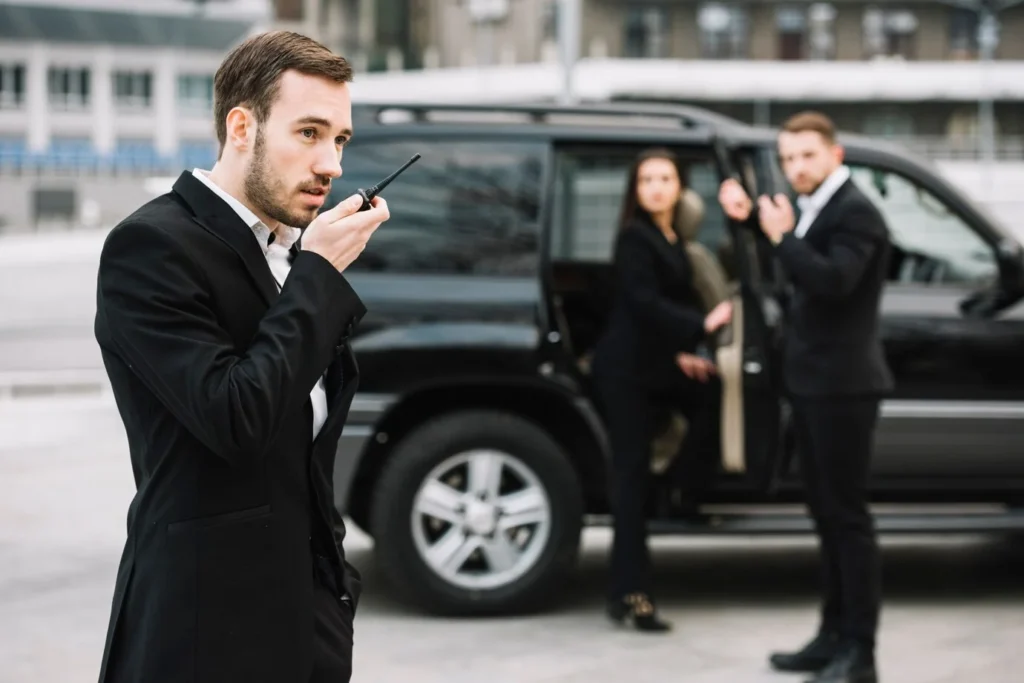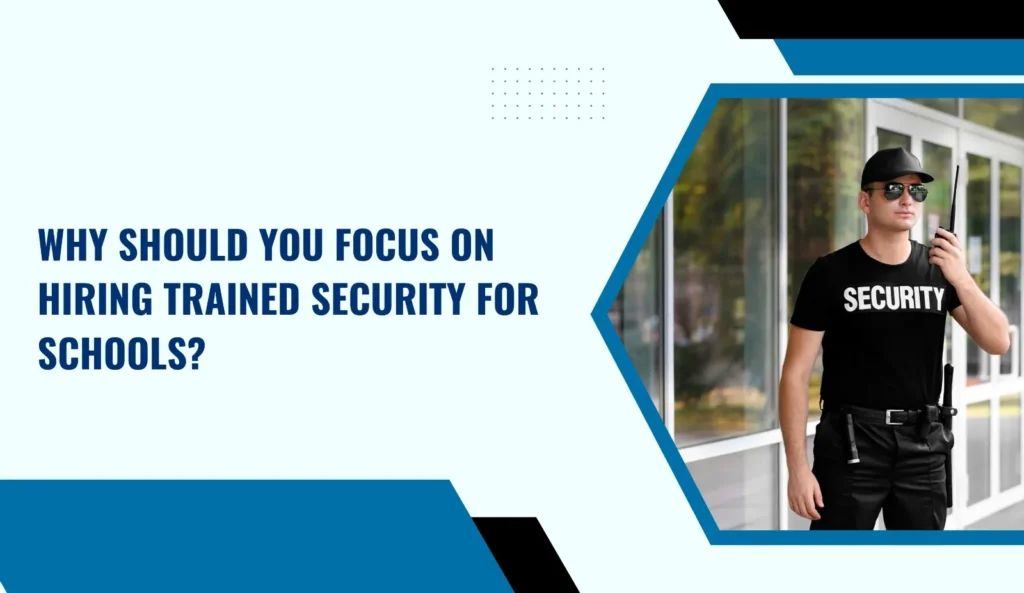-
Motilal Colony , Dumdum, Kolkata 700079
How to Create an Effective Event Security Plan?
Home | Blogs | How to Create an Effective Event Security Plan?

By Royals
February 24, 2025
How to Create an Effective Event Security Plan?
An Effective Event Security Plan is crucial to ensuring the safety of attendees, staff, and assets. Learn the key steps to develop a foolproof security strategy.
Planning an event involves various elements—venue selection, guest management, logistics, and entertainment. However, one of the most important yet often overlooked aspects is event security. Without a well-structured Effective Event Security Plan, events can become vulnerable to security threats, including unauthorized access, crowd mishandling, theft, and even emergencies like fires or medical incidents.
Table of Contents
Whether you’re organizing a corporate conference, a music festival, or a private gathering, security should be a top priority. This guide will walk you through the essential steps to develop a comprehensive event security plan that ensures safety, control, and smooth event execution.

Why Is Event Security Important?
Security is not just about preventing crime; it’s about creating a safe and controlled environment for all attendees. A well-planned security strategy ensures:
- Protection of Guests & Staff: Reduces risks related to physical harm, accidents, or medical emergencies.
- Prevention of Unauthorized Access: Ensures only permitted individuals enter restricted areas.
- Efficient Crowd Management: Helps prevent overcrowding, panic, and disorder.
- Readiness for Emergencies: Provides a structured response to medical crises, fire hazards, and security threats.
- Asset & Equipment Protection: Minimizes the chances of theft, vandalism, or property damage.
A successful event is not just about entertainment or business objectives; it’s also about safety and security.
Key Steps to Create an Effective Event Security Plan
1. Conduct a Risk Assessment
Every event has unique risks. The first step in creating an Effective Event Security Plan is identifying potential threats through a comprehensive risk assessment.
- Analyze the event size, location, and type (indoor vs. outdoor, corporate, public, private, etc.).
- Identify high-risk factors, such as VIP guests, political or controversial themes, alcohol service, or large crowds.
- Review previous incidents at similar events to anticipate common security challenges.
- Consider factors like weather conditions (for outdoor events) that may impact safety.
💡 Tip: Consult with professional security experts to conduct a thorough risk analysis.
2. Establish Clear Security Protocols
Once risks are identified, define clear security protocols:
- Access Control Measures:
- Secure entry and exit points.
- Use metal detectors, bag checks, and identity verification.
- Implement guest lists and pre-registration for restricted events.
- Identification & Credentialing:
- Use RFID wristbands, digital passes, or photo IDs for attendees.
- Assign color-coded badges to distinguish guests, staff, and VIPs.
- Crowd Control & Movement Management:
- Plan clear pathways and emergency exits.
- Use barriers and barricades to guide foot traffic.
- Assign ushers or crowd control marshals for larger events.
- Security Personnel Deployment:
- Position guards at key entry points, exits, and high-risk areas.
- Assign roaming security teams for continuous surveillance.
- Event-Specific Rules:
- Establish policies on prohibited items, photography, and alcohol consumption.
📌 Example: Large-scale concerts often have tiered security levels, with general security at entrances and specialized teams near VIP areas.
3. Hire Experienced Security Personnel
A professional security team ensures a controlled and incident-free event. Choose personnel based on:
- Experience in event security (handling crowds, VIP protection, emergency response).
- Certifications in first aid, conflict resolution, and crisis management.
- Strong communication skills to coordinate with attendees and event staff.
👮♂️ Security Team Roles May Include:
- Entrance Guards: Screen attendees for restricted items.
- Patrolling Officers: Monitor suspicious activity within the event.
- Emergency Response Team: Handle medical emergencies and fire safety.
- Cybersecurity Experts: Protect digital infrastructure for hybrid/virtual events.
🔹 Did you know? High-profile events often require a mix of armed and unarmed security personnel, depending on risk levels.
4. Leverage Surveillance & Monitoring Technologies
Technology plays a crucial role in modern event security. Consider using:
- CCTV Surveillance: Install cameras at entrances, exits, and crowd-heavy areas.
- Drone Monitoring: Use drones for aerial surveillance of large outdoor events.
- Walkie-Talkies & Radios: Enable instant communication between security teams.
- AI-Powered Threat Detection: Use facial recognition to identify known security threats.
📌 Pro Tip: Live surveillance teams can detect and respond to threats in real time.
5. Prepare a Comprehensive Emergency Response Plan
Even with the best preventive measures, emergencies can occur. A solid emergency response plan should include:
- Evacuation Procedures: Clearly marked exits and crowd dispersion plans.
- First Aid & Medical Stations: On-site paramedics for immediate medical assistance.
- Fire Safety Measures: Fire extinguishers, smoke detectors, and designated fire exits.
- Coordination with Authorities: Quick response collaboration with police, firefighters, and medical teams.
📌 Example: At sports stadiums, designated safe zones help manage evacuations in case of emergencies.
6. Ensure Cybersecurity for Virtual & Hybrid Events
With the rise of virtual and hybrid events, cybersecurity has become equally important.
- Protect guest data from cyber threats like hacking and phishing.
- Use secure ticketing platforms to prevent fraud.
- Monitor social media for potential security threats or misinformation.
- Implement encrypted Wi-Fi networks to prevent cyberattacks on event operations.
7. Conduct Pre-Event Security Drills & Briefings
Before the event starts, conduct a security briefing with all team members.
- Train event staff on emergency protocols and security procedures.
- Assign security personnel to designated areas based on the event’s layout.
- Perform a final equipment check for CCTV, radios, and access control systems.
- Test emergency response drills to ensure everyone is prepared.
🎯 A well-prepared team is key to preventing security incidents before they escalate!
If you want to know more about event security in corporate gatherings then you can visit here

FAQs About Effective Event Security Planning
1. How do I determine the number of security guards needed for my event?
The general rule is one security officer per 100 attendees, but factors like event type and risk level may require more.
2. What are common security risks at events?
Unauthorized entry, crowd surges, theft, medical emergencies, and cyber threats.
3. How can I ensure a smooth entry process without compromising security?
Use multiple entry points, digital check-ins, and RFID wristbands for faster and more secure access.
4. Why should I hire a professional security service for my event?
Professionals offer expert risk assessment, trained personnel, and advanced security technologies, ensuring a safe and controlled event.
5. How can I prepare for emergencies at my event?
Create a detailed emergency response plan that includes medical stations, evacuation routes, and coordination with authorities.
Ensure Event Success with an Effective Security Plan
An Effective Event Security Plan is not just an option; it’s a necessity. By conducting risk assessments, hiring experienced security teams from the Best Security Company In Kolkata, using advanced surveillance technology, and preparing for emergencies, you can ensure a safe, secure, and successful event.
Whether it’s a corporate function, concert, or public gathering, proactive security measures protect both people and property. Always consult with professionals to develop a security strategy tailored to your event’s needs.
🔹 Prioritize safety, and your event will be a success!



